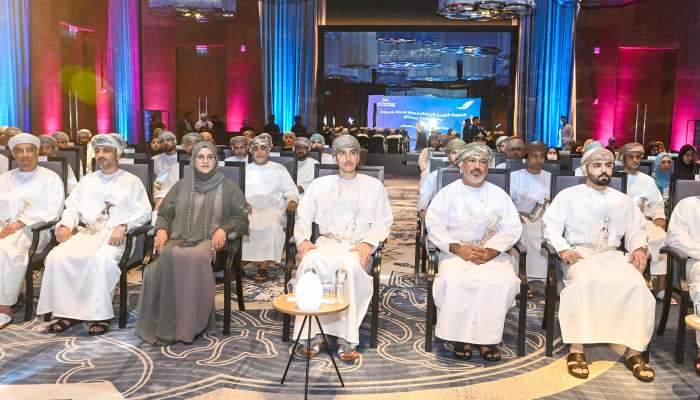The Oman Vision 2040 Implementation Follow-up Unit, in collaboration with Alizz Islamic Bank, recently released three guidelines focused on quality management, institutional excellence, institutional innovation, and the application of Lean process improvement methodology. The inaugural ceremony was overseen by HH Sayyid Kamil bin Fahd Al Said, Secretary-General at the Secretariat General of the Council of Ministers. Sayyid Dr. Munthir Hilal Al Busaidi, Deputy Chairman of the Oman Vision 2040 Implementation Follow-up Unit, emphasized the importance of providing support to government service departments and implementing international best practices to upgrade the government system, meet beneficiary expectations, and enhance the competitiveness of Oman.
During the event, a memorandum of understanding (MoU) was signed between the Oman Vision 2040 Implementation Follow-up Unit and Alizz Islamic Bank to promote private sector participation in the objectives of Oman Vision 2040. This collaboration aims to leverage the expertise and resources of the private sector to drive innovation, efficiency, and excellence in government services, further aligning with the overarching goals of the Vision 2040 initiative. By engaging the private sector, the government seeks to enhance its services, increase transparency and accountability, and foster a culture of continuous improvement and innovation across various sectors.
The guidelines issued by the Oman Vision 2040 Implementation Follow-up Unit serve as a roadmap for government service departments to enhance their quality management, institutional excellence, and innovation capabilities. By adopting the principles outlined in these guidelines, organizations can streamline their processes, drive operational efficiency, and cultivate a culture of excellence and innovation within their respective domains. Furthermore, the application of Lean process improvement methodology can help organizations identify and eliminate waste, optimize resource utilization, and deliver value-added services to their constituents.
The signing of the MoU between the Oman Vision 2040 Implementation Follow-up Unit and Alizz Islamic Bank underscores the commitment of both parties to fostering collaboration between the government and the private sector. By leveraging the unique strengths and capabilities of the private sector, the government can tap into a wealth of resources, expertise, and innovation to drive meaningful change and achieve sustainable development goals. This partnership is expected to pave the way for more strategic alliances and initiatives that will catalyze economic growth, create job opportunities, and enhance the overall quality of life for the people of Oman.
As the Sultanate of Oman strives to achieve the objectives outlined in the Vision 2040 initiative, collaboration with key stakeholders, including the private sector, will be crucial in driving progress and realizing the vision of a prosperous, inclusive, and sustainable future. By following the guidelines on quality management, institutional excellence, and institutional innovation, government service departments can enhance their operational capabilities, improve service delivery, and build a reputation for excellence and efficiency. Through the application of Lean process improvement methodology, organizations can further streamline their operations, reduce bottlenecks, and optimize their resource utilization, ultimately leading to better outcomes for citizens and stakeholders.
In conclusion, the issuance of the guidelines on quality management, institutional excellence, and institutional innovation by the Oman Vision 2040 Implementation Follow-up Unit reflects the government’s commitment to driving continuous improvement, innovation, and excellence in public service delivery. By partnering with institutions like Alizz Islamic Bank through strategic collaborations and MoUs, the government can harness the expertise and resources of the private sector to achieve its development goals and enhance the overall competitiveness and sustainability of the Sultanate of Oman. Through effective implementation of these guidelines and the principles of Lean process improvement methodology, government organizations can realize tangible benefits, improve efficiency, and deliver value-added services that meet the evolving needs of citizens and stakeholders in line with the Vision 2040 aspirations.











